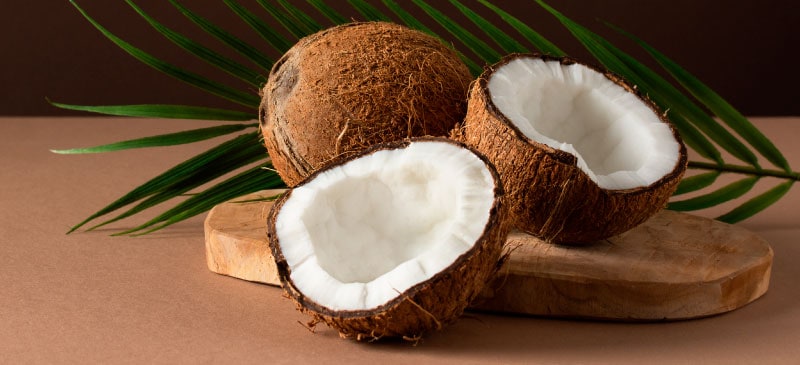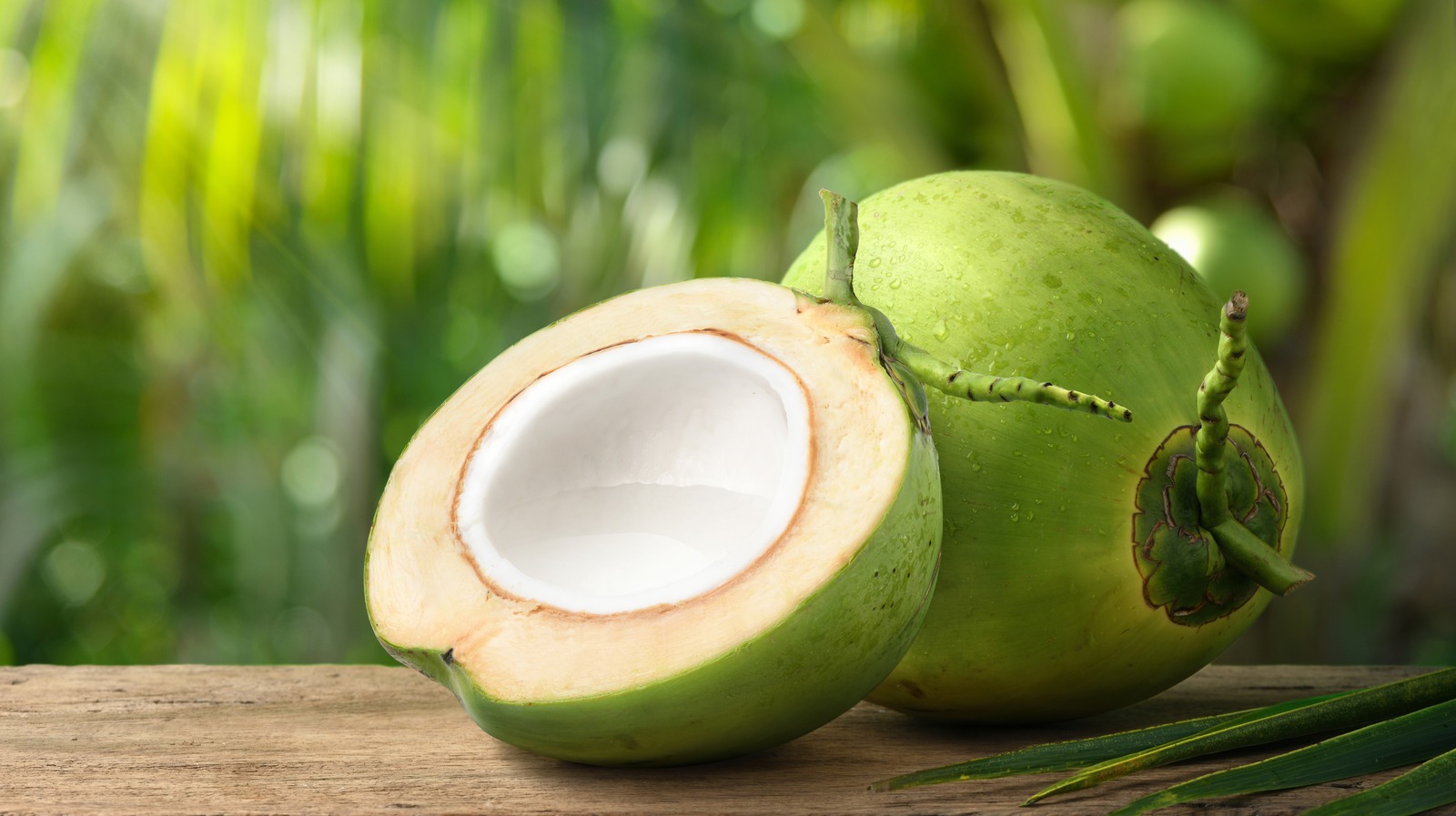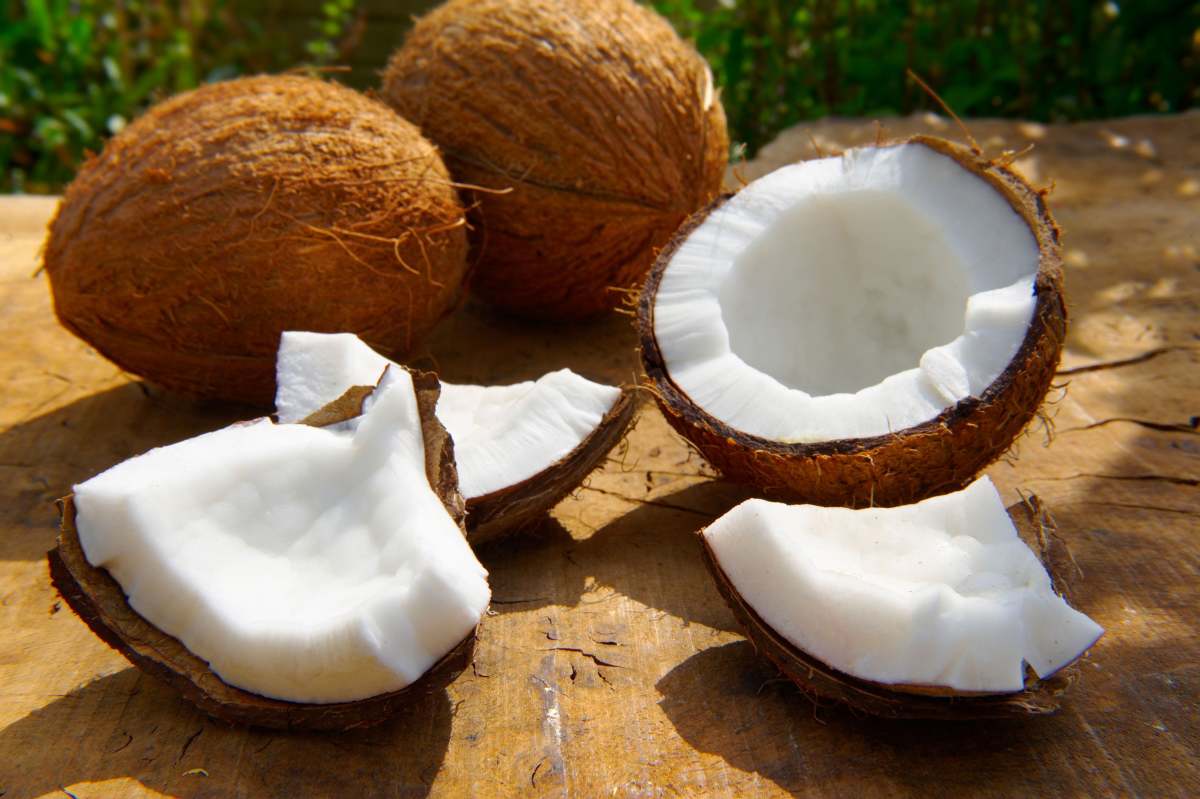Discover The Coconut Sprayer: A Fresh Approach To Plant Wellness
Detail Author:
- Name : Dr. Zackery Howe
- Username : pstroman
- Email : parker.erich@beahan.org
- Birthdate : 1986-08-02
- Address : 6078 Waters Forges Davisshire, CA 73009-8461
- Phone : (947) 588-9998
- Company : Hickle, Jacobs and Emard
- Job : Radio and Television Announcer
- Bio : Qui debitis minima et suscipit optio eius. Id quis harum aut. Reiciendis deserunt error aut est saepe libero.
Socials
tiktok:
- url : https://tiktok.com/@fredy.roob
- username : fredy.roob
- bio : Eum et sed non quia autem aliquid.
- followers : 5084
- following : 2937
instagram:
- url : https://instagram.com/fredyroob
- username : fredyroob
- bio : Est nesciunt fugit amet est rem. Autem voluptatum eius fugit et.
- followers : 5586
- following : 1541
twitter:
- url : https://twitter.com/fredy.roob
- username : fredy.roob
- bio : Vero omnis nisi doloremque. Dolore et tempore adipisci similique distinctio perferendis. Mollitia autem maxime ut doloribus.
- followers : 1214
- following : 1261
facebook:
- url : https://facebook.com/fredyroob
- username : fredyroob
- bio : Rerum aliquam sint ut. Dolorum deserunt odit nesciunt blanditiis.
- followers : 3770
- following : 1280
linkedin:
- url : https://linkedin.com/in/fredyroob
- username : fredyroob
- bio : Qui consectetur enim voluptatibus perspiciatis.
- followers : 1640
- following : 2454
Have you ever thought about how some simple, natural tools could truly change your daily routines, especially when caring for your green friends? Well, a coconut sprayer is that kind of helpful item, too. It brings a whole new way of thinking about how we nourish our plants and manage common garden issues. This little device, you know, opens up a world of possibilities for using the amazing properties of the coconut itself.
For ages, people have found so many uses for the coconut tree and its wonderful fruit. My text points out that the coconut tree gives us food, fuel, cosmetics, and even folk medicine. It is quite a versatile plant, isn't it? A coconut, the edible fruit of the coconut palm, is truly a gift from nature, providing a wealth of benefits that extend far beyond just eating it.
We're talking about a tool that helps you apply all that coconut goodness, like its water or oil, to your plants in a very effective way. This can mean healthier leaves, stronger roots, and a more vibrant garden overall, it's almost a natural wonder. So, let's explore what makes a coconut sprayer such a neat addition to your gardening kit.
Table of Contents
- What Exactly is a Coconut Sprayer?
- The Power of Coconut in a Spray
- Choosing Your Coconut Sprayer
- How to Use Your Coconut Sprayer Effectively
- Caring for Your Sprayer
- Frequently Asked Questions About Coconut Sprayers
- A Fresh Look at Garden Care
What Exactly is a Coconut Sprayer?
A coconut sprayer, at its heart, is a tool designed to evenly distribute liquid solutions, often those derived from coconut, onto plants, garden beds, or even surfaces in your home. It can be a simple hand-pump bottle or a more advanced pressure sprayer, basically. The key idea here is its purpose: to make it easy to use coconut's natural properties for various applications.
You see, while the term might make you think of a sprayer made *from* coconut, it usually refers to a sprayer *for* coconut-based liquids. This distinction is pretty important. Think of it as a delivery system, helping you get the benefits of coconut water or diluted coconut oil right where they need to be, you know. It's about precision and efficiency in applying natural solutions.
Why Consider One for Your Home or Garden?
Using a coconut sprayer means you are leaning into more natural ways of doing things, which many people appreciate these days. My text mentions that the coconut palm provides a lot of good things, and this extends to how we care for our surroundings. It is a way to reduce reliance on harsh chemicals, for one thing.
For example, if you are looking for gentle ways to support plant growth or handle little garden nuisances, this kind of sprayer comes in handy. It allows for targeted application, meaning less waste and more effective treatment. This can be a really good thing for your plants and the environment, too it's almost a win-win.
The Power of Coconut in a Spray
The coconut, as my text highlights, is quite a remarkable fruit. It offers many health benefits, from possibly helping with blood sugar control to containing powerful compounds. But its usefulness isn't just for us; it can extend to our plants too, which is interesting. The different parts of the coconut, like its water and oil, have properties that can be very beneficial when sprayed.
My text tells us that coconut flesh is high in fat, and can be dried or eaten fresh. This fat content, particularly in coconut oil, plays a role in its potential uses beyond just food. Understanding these basic facts about coconut helps us see why a sprayer dedicated to these solutions makes so much sense, you know. It’s all about leveraging nature’s own tools.
Coconut Water for Plants: A Natural Boost
Coconut water, the clear liquid inside young coconuts, is full of electrolytes, vitamins, and minerals. My text points out that learning more about coconut, its juice and meat, and its nutritional information is quite useful. For plants, this means a natural source of nutrients that can encourage growth and overall plant vigor, which is pretty neat.
When you spray diluted coconut water onto plant leaves or the soil around them, you are giving them a gentle, nourishing drink. It is like a natural tonic. Some gardeners find it helps with seed germination or even as a rooting hormone for cuttings. This is a very mild approach to plant care, and it is usually quite safe for most plant types, basically.
Using a sprayer for coconut water ensures an even mist, covering the leaves nicely. This helps the plant absorb the nutrients more effectively. It is a simple step that can make a difference in how your plants look and feel, which is kind of satisfying. Just remember to dilute it first, as pure coconut water can be a bit too strong for some plants, naturally.
Coconut Oil for Pest Control: A Gentle Defender
Coconut oil, derived from the flesh of the coconut, has a unique composition, as my text says the flesh is high in fat. This oily nature makes it a surprisingly effective, yet gentle, tool for managing certain garden pests. When diluted and sprayed, it can act as a physical barrier or smother small, soft-bodied insects, apparently.
For instance, if you have tiny aphids or spider mites bothering your plants, a diluted coconut oil spray can sometimes help. It coats their bodies, making it hard for them to breathe or move around. This is a non-toxic method, which is a big plus for anyone wanting to keep their garden free from harsh chemicals. It is a simple, physical way to deter unwanted visitors, really.
Just like with coconut water, proper dilution is key when using coconut oil. Too much can block a plant's pores, so a very light mixture is best. Applying it with a fine mist from your coconut sprayer ensures even coverage without oversaturating the leaves. It is a method that aligns well with organic gardening practices, you know, supporting a healthier ecosystem.
Choosing Your Coconut Sprayer
When you are thinking about getting a coconut sprayer, there are a few things to consider to make sure you pick the right one for your needs. The size and type of sprayer matter quite a bit. For small indoor plants or a few potted herbs, a small hand-pump spray bottle might be perfect, basically.
If you have a larger garden or many plants, a bigger pressure sprayer with a longer wand could be more efficient. These often hold more liquid and provide a consistent spray for longer periods. You also want to look for a sprayer that offers a fine mist setting, as this is usually best for applying delicate solutions like coconut water or diluted oils, you know.
Consider the material of the sprayer as well. Durable plastic or even stainless steel options are available. A good quality nozzle that won't clog easily is also very important, especially when working with natural solutions that might have tiny particles. So, think about how often you'll use it and for what specific tasks before making your choice, naturally.
How to Use Your Coconut Sprayer Effectively
Using your coconut sprayer properly ensures you get the best results for your plants. First, always prepare your coconut solution fresh. For coconut water, you might dilute it with equal parts water, or even more, depending on the plant. For coconut oil, just a tiny bit mixed with water and a drop of mild soap (as an emulsifier) is usually enough, it's almost like magic.
Fill your sprayer carefully, making sure not to overfill it. If it is a pump sprayer, build up enough pressure for a steady, even mist. When spraying, hold the nozzle about 6 to 12 inches away from the plant leaves. Aim for good coverage on both the top and underside of the leaves, as well as the stems, if you are targeting pests, you know.
It is often best to spray in the early morning or late evening when the sun is not too strong. This helps prevent the solution from evaporating too quickly and reduces the risk of leaf burn, especially with oil-based sprays. Consistency is key, so regular, light applications are generally more effective than one heavy dousing, apparently.
You can learn more about natural plant care methods on our site, which might give you more ideas for using your sprayer. And for specific plant needs, you could also check out this page for detailed guides on different plant types, too it's almost like having a personal garden coach.
Caring for Your Sprayer
Keeping your coconut sprayer clean is really important for its longevity and performance. After each use, especially when spraying oil-based solutions, it is a good idea to rinse the sprayer thoroughly with clean water. This prevents residue buildup that can clog the nozzle or affect future applications, you know.
For a deeper clean, you can sometimes run warm, soapy water through the sprayer, then follow with a clear water rinse. Make sure to spray some of the clean water through the nozzle to clear any blockages there. This simple step helps maintain a consistent spray pattern and prevents any lingering smells or residues from previous solutions, basically.
Store your sprayer in a cool, dry place, away from direct sunlight. This helps preserve the integrity of the materials, especially plastic parts. A well-maintained sprayer will serve you well for a long time, making your plant care routine much smoother. It is a small effort that yields big rewards, really, keeping your tools ready for action.
Frequently Asked Questions About Coconut Sprayers
Can I use any type of coconut water in my sprayer for plants?
You can usually use fresh, unsweetened coconut water for your plants. It is best to avoid sweetened or flavored coconut drinks, as these can contain sugars and additives that are not good for plants. Natural, pure coconut water is what you want, you know, for the best results.
How often should I spray my plants with coconut solutions?
The frequency really depends on the specific solution and your plant's needs. For general nourishment with diluted coconut water, once every few weeks might be enough. For pest control with diluted coconut oil, you might apply it every few days until the issue improves, then reduce frequency. Always observe your plants for their reaction, basically.
Are there any plants that should not be sprayed with coconut solutions?
While coconut solutions are generally gentle, some very sensitive plants might react differently. It is always a good idea to do a small test spray on a single leaf first and wait a day or two to see if there is any adverse reaction. If the leaf looks fine, you can then proceed with spraying the rest of the plant, you know, just to be safe.
A Fresh Look at Garden Care
The coconut, as my text describes, is an excellent source of many good things, and its versatility truly shines when you think about how it can help in your garden. From the nourishing properties of coconut water to the gentle pest-fighting abilities of coconut oil, this fruit offers so much. A coconut sprayer simply makes it easier to put these natural benefits to work for your plants, you know.
It is about embracing a more natural, thoughtful approach to caring for your green companions. As we consider more sustainable ways to live, tools like the coconut sprayer fit right in, allowing us to use nature's gifts effectively. So, if you are looking to give your plants a little extra love, or tackle common garden problems with a gentle touch, a coconut sprayer could be just what you need, basically.
The idea of using coconut for plant wellness is certainly gaining traction among those who prefer organic methods. It’s a simple, yet powerful, concept that brings the goodness of the coconut right to your garden. For more detailed information on the many benefits of coconut itself, you might find this resource helpful: Healthline's Coconut Benefits. It is a good way to deepen your appreciation for this amazing fruit.

Coconut Benefits, Nutrition, Recipes, How to Open and More - Dr. Axe

14 Facts About Coconut - Facts.net

Health and nutrition benefits of coconut - HubPages